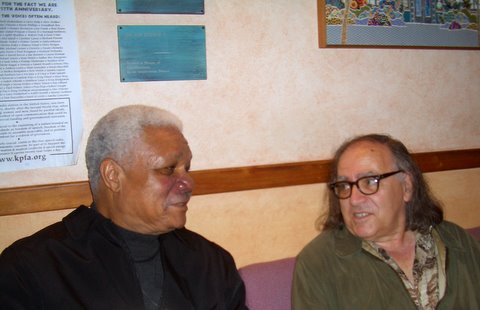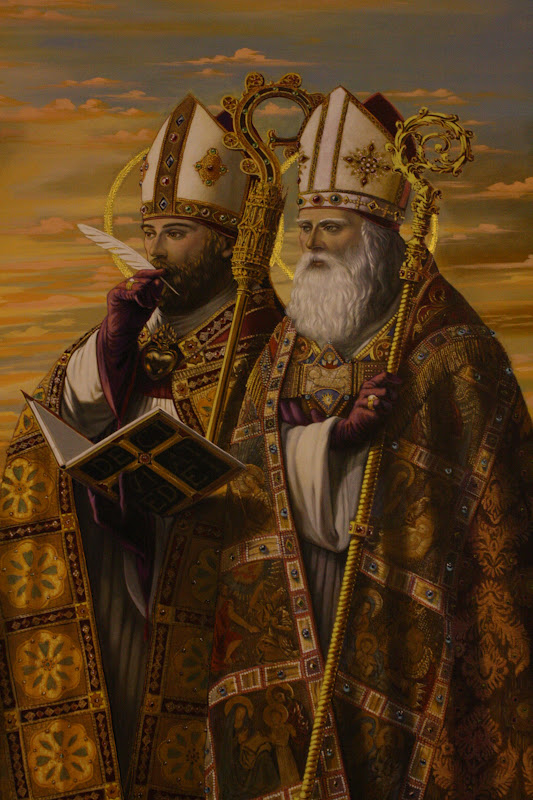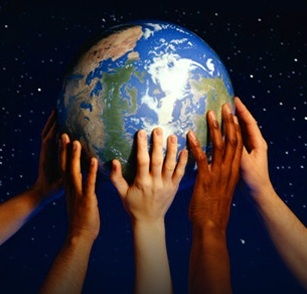At the conclusion of the great Brecht-Weill theater piece, Die Dreigroschenoper (The Threepenny Opera, 1928), the Street Singer, seemingly alone on the stage,sings,
Denn die einen sind im Dunkeln
Und die andern sind im Licht.
Und man siehet die im Lichte
Die im Dunkeln sieht man nicht.
For some are in darkness / And others are in the light / And you see the ones in the light /You don’t see those in darkness (in Marc Blitzstein’s rhymed translation: There are some who are in darkness / And the others are in light / And you see the ones in brightness / Those in darkness drop from sight). Suddenly, behind the singer, the stage lights up and we see—beggars (what we would call “street people”). They are precisely what the theater audience went to the theater to avoid. It is a moment of violent contradiction (“dialectics”) and illumination. For a moment, the theater, in all its falseness, is alive with reality.
That impulse to illuminate what Langston Hughes called “the darker brother” (“I, Too”) has been at the heart of one of the great struggles of the twentieth/twenty-first century, and it has taken place both in the realm of politics and the realm of the psyche. What is “the Unconscious” if not “the darker brother” understood as a fact of mind? Und man siehet die in Lichte / Die im Dunkeln sieht man nicht.
*
What does it mean to be “white”? According to the Oxford English Dictionary, the first appearance in print of the word “white” meaning “A white man; a person of a race distinguished by a light complexion,” was in 1671. The second was in 1726. The speaker is a ship’s captain:
There may be about 20000 Whites (or I should say Portuguese, for they are none of the whitest,) and about treble that number of Slaves.
The term“Caucasian” is even later:
Of or belonging to the region of the Caucasus; a name given by [Johann Friedrich] Blumenbach (a 1800) to the “white” race of mankind, which he derived from this region.
“Through the centuries of the slave trade,” writes Earl Conrad in The Invention of the Negro(1967),
the word race was rarely if ever used…Shakespeare’s Shylock uses the words tribe, nation, but not race. The Moor in Othello calls himself black and the word slave is several times used, but not race. The word does not appear in the King James Version of the Bible in any context other than as running a race. The Bible refers to nations and says: “God made the world and all things therein, and hath made of one blood all nations of men for to dwell on all the face of the earth.” The Bible, with all its violence and its incessant warfare between peoples, does not have racist references to tribes, groups, provinces, nations, men.
And again, on the subject of slavery:
The traffic grew with the profits—the shuttle service importing human chattel to America in over-crowded ships. It was on these ships that we find the beginnings—the first crystallizations—of the curious doctrine which was to be called “white supremacy”…Among the first white men to develop attitudes of supremacy were the slave ship crews.
Hand in hand with what Mr. Conrad calls “the invention of the Negro” goes the invention of “the white man.”
Some years ago, my son came home from school one day and told me that he had seen some T shirts which had the phrase “Black is Beautiful” on them. He complained that he couldn’t wear a shirt that said, “White is Beautiful.” I said, “That’s true. But you could wear a shirt that said “Irish is Beautiful” or “Italian is Beautiful.” The point suddenly became quite clear to me: “white” was not an ethnic group; it had no traditions, no “culture.”
But if it was not an ethnic group, what was it?
I think the answer is that “white” is an indication of dominance. It is always involved at some level with what Kipling memorably called “the white man’s burden.” “White” in this sense is an indication of power, or of the struggle for power, or of power’s lack. In the entry from theO.E.D. that I quoted a moment ago, the rhetorical opposite of “Whites” is not “Blacks” but “Slaves”:
There may be about 20000 Whites (or I should say Portuguese, for they are none of the whitest,) and about treble that Number of Slaves.
To be “white” is to engage in dominance behavior. Insofar as one does not engage in dominance behavior one is not white. But one remains Italian or Irish or German or Swedish or Jewish or whatever. The only way for the “majority” to conceive of itself as a majority is to conceive of itself as white: without whiteness there only “minorities”—not multi-crushing “unity” (whiteness) but “multiplicity.”
To speak of multi- (as opposed to mono-) culturalism, therefore, is to speak of seeing the world without whiteness—though one has to admit that whiteness (power, dominance) is much in evidence. We create it daily in our interplay with others. To feel superior to another is to dominate him/her to some degree, and so part of the pleasure we might feel in, say, receiving a university education is the pleasure of dominance, the pleasure of “whiteness.”
*
What I have been discussing here is primarily the perception of “multiplicity” as a social and political fact—which is indeed something to fight for. It is as a social and political fact that the term “multiplicity” is primarily understood. But it seems to me that it is necessary to go further than that: it is necessary to understand multiplicity as a fact of consciousness—to perceive that the same multiplicity/diversity we perceive in the world is perceived because it is a reflection of the nature of our own consciousness. The only way we can understand multiplicity at a deep level is to understand that it flows from ourselves. Unfortunately, “ethnic”literature often does not grasp this fact and projects itself simply as an “I” consciousness, an individual consciousness, an ego: look what happened to ME; MY GROUP has been unfairly discriminated against, etc. It is of course necessary to make such assertions—groups are unfairly discriminated against—but it is also necessary to move beyond them. The term“individual” comes from the Latin, individuus. It means “not divided,” “incapable of further division”—in dividuus. If I am thinking in political terms, the word “individual” is admirable: the “rights of the individual” are everywhere to be defended. But if I am thinking in terms of consciousness, the word fails entirely: in terms of consciousness, I am deeply divided. It is in fact the very nature of consciousness to be divided, to be multiple—to see many points of view. Insofar as that is true, I am not an “individual.”
It is at this point that “literature”—even supposedly “avant-garde” literature—and politics begin to merge. One of the iconic examples of the twentieth-century avant-garde is T.S. Eliot’s poem, The Waste Land (1922). And whatever its strengths and failings, The Waste Land is a poem that understands consciousness to be multiple, to consist of the interplay of many sometimes conflicting voices. It is perhaps easier for people to understand this concept in terms of music (a band, a group) than it is to understand it in terms of literature—which is why The Waste Land seemed so “obscure” to so many. But if we are serious about multiplicity as a political fact then we must understand that we need to establish it as a fact of the psyche as well. Otherwise we get the often-voiced complaint that multiplicity (read “political correctness”) is simply something imposed upon us by a particular group with its own agenda—something which we as “individuals” ought to fight against.
Monotheism and individualism have been for many years the bedrock foundations of a particular strand of Western culture—a strand we sometimes name as “the dominant culture.” But they are not the only elements of Western culture. As Brecht and many other twentieth-century figures understood, there is a fructifying “darkness” to which we can look for illumination. (The religious figure Matthew Fox has actually called for an “endarkening” of culture!) It seems to me that both the concept of monotheism and the concept of “individuality” affirm precisely what “multiplicity” ought to be against—though I don’t wish to be dogmatic here: despite the central issue, some modes of monotheism certainly do allow for pluralism. But the point is that for some time now, we have been watching Western culture collapse around us—watching its tremendous failures; yet Western culture has within itself the means of its own renewal: it is large enough and diverse enough to be able to re-create itself in an image in which we can truly live. But we need to redefine things, not simply affirm them under another name or in a different context. If ethnicity affirms the monotheistic “God” and “individuality,” it is affirming precisely those things that oppressed it in the first place: as such it remains stylistically closed, ego-centric, never experiencing the clash of cultures that “multiculturalism” and ethnicity’s own best impulses imply.
In the multicultural poetry anthology, Unsettling America (1994), editors Maria Mazziotti Gillan and Jennifer Gillan take a sense of movement and change to be the primary fact about America: “We chose poems,” Jennifer Gillan writes, “that directly address the instability of American identity and confront the prevalence of cultural conflict and exchange within the United States…We hope to highlight the constant erecting, blurring, breaking, clarifying, and crossing of boundaries that are a consequence of the complex intersections among peoples, cultures, and languages within national borders, which themselves are revised constantly.”
Gillan’s eloquent words recall those of Alexis de Tocqueville, whose Democracy in Americaappeared in the original French and in an English translation between 1835 and 1840. In America, writes de Tocqueville, “continual changes are…every instant occurring under the observation of every man”; there is “universal tumult,” an “incessant conflict of jarring interests”; “everyone is in motion.”
As these quotations suggest, “the instability of American identity”—its “unsettling”—is an old story, but it is one which is continually hidden under the rhetoric of stability and constancy, a rhetoric which has furnished many a politician with comforting platitudes about “family values” and “Americanism”—not to mention the dubious notion of the immigrant’s supposed “newly found freedom in America.” What Ishmael Reed calls “MultiAmerica” is not a melting pot but a conversation among people who both agree and disagree—and who live with one another in an extremely problematical way, a way which is constantly “unstable,” constantly attempting to define itself. The tensions that arise out of genuine difference, out of what may be in fact utter incompatibility, are what Americans must simultaneously deny and deal with on an everyday basis. It is a mistake to treat this situation as a problem to be “solved”—as a “problem” it is fundamentally insoluble!—but it is no mistake to find distinctive and imaginative ways to recognize it and live with it, to allow for the fact of motion in everything that we do. We may wish for stasis, but as Galileo Galilei put it in 1633, at the very beginning of our awakening to our deepest understanding of the world, Eppur si muove—“And yet it moves.”
This article appeared first in “Foley’s Books,” THE ALSOP REVIEW.








 –by Jack Foley
–by Jack Foley —by Jack Foley
—by Jack Foley